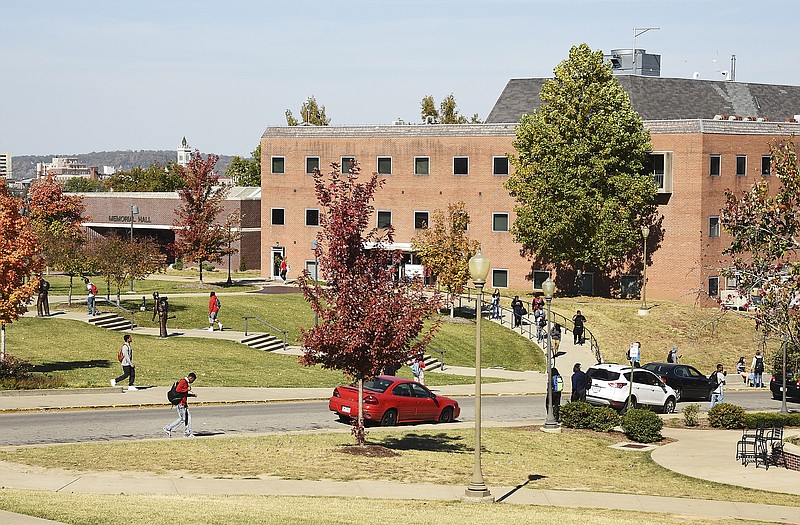After more than three hours of public comments and debate among the members of the Jefferson City Council, a proposed bill to vacate Chestnut Street was put on the informal calendar, meaning no decision was made Monday.
At the council meeting Monday, council members discussed a bill to vacate Chestnut Street, from Dunklin Street to Atchison Street, to allow Lincoln University to create a pedestrian plaza, before 3rd Ward Councilman Bob Scrivner, who also is the bill's sponsor, opted to place it on the informal calendar.
After initially seeking a full vacation, Lincoln University agreed to more of a partial vacation, where the university would be required to provide electronically-operated gates to the pedestrian plaza. The gates would be closed 8:30 a.m.-5 p.m. Monday through Friday, but still allow deliveries and emergency vehicles access to the street.
The agreement would lay out a process of vacating the street in phases, where the first phase would require Lincoln to install the new gates. Within seven days of that installation, the partial vacation would begin, closing the street from 8:30 a.m.-5 p.m. Monday through Friday.
Once the gates are installed, the university would take on street maintenance responsibilities, including snow removal, parking enforcement and repairs.
Once the Lafayette Street interchange is complete, which is expected by late 2016, and Lincoln has completed the designs and fundraising for the pedestrian plaza, the city would completely vacate the street within 30 days. At that time, Lincoln could completely close the street.
The agreement also stipulates the university would contribute up to 50 percent of the cost toward improving Atchison and Locust streets "at some future time," as well as pledge to cooperate with the long-range planning of the community around the university.
Scrivner made the decision after several council members discussed adding another requirement to the agreement before a full vacation could be triggered. That requirement would have city staff prepare a plan to address traffic concerns on Clark Avenue and associated streets before Chestnut Street could be vacated, which likely would address many residential concerns in the neighborhood.
Before moving the bill to the informal calendar, the council heard from 54 people who spoke on the issue during the meeting. Of those who spoke, 36 were in favor of vacating the street and 18 were against. Of the 36 in support, a majority were either students or employees of Lincoln University, while a majority of those opposed were residents of the neighborhood.
Most of those against the vacation brought up traffic issues on Clark Avenue, calling it too dangerous to handle additional traffic from Chestnut Street.
Lincoln University President Kevin Rome said he understood the passions on both sides of the issue, but noted that the university is trying to work with the community.
"We've offered many concessions ... because we don't want to leave this with the feeling that someone won and someone lost," Rome said. "We're willing to do our part."
Rome said the safety issue also goes beyond simple student safety while crossing the street. He said the school would be unable to close its campus in case of an attack or gunman on campus, as has been seen at other colleges. By vacating the street, Rome said the university would be able to secure its campus in case of a dangerous situation.
After Scrivner put the bill on the informal calendar, Rome went to the podium once more, this time with Bill Ambrose, a resident of the neighborhood who had earlier spoke against the vacation. Rome said the two of them now want to see a plan from the city, funded by the city, to address the traffic and safety concerns residents had expressed during the meeting.
Rome said he would also like to work with the city to plan for the university's continued growth.
After the meeting, Scrivner said that type of plan is exactly what he would like to see before any vacation; a plan that comes out of working with both the residents in the area and the university.
The council likely will take up the bill at the Nov. 2 meeting.

